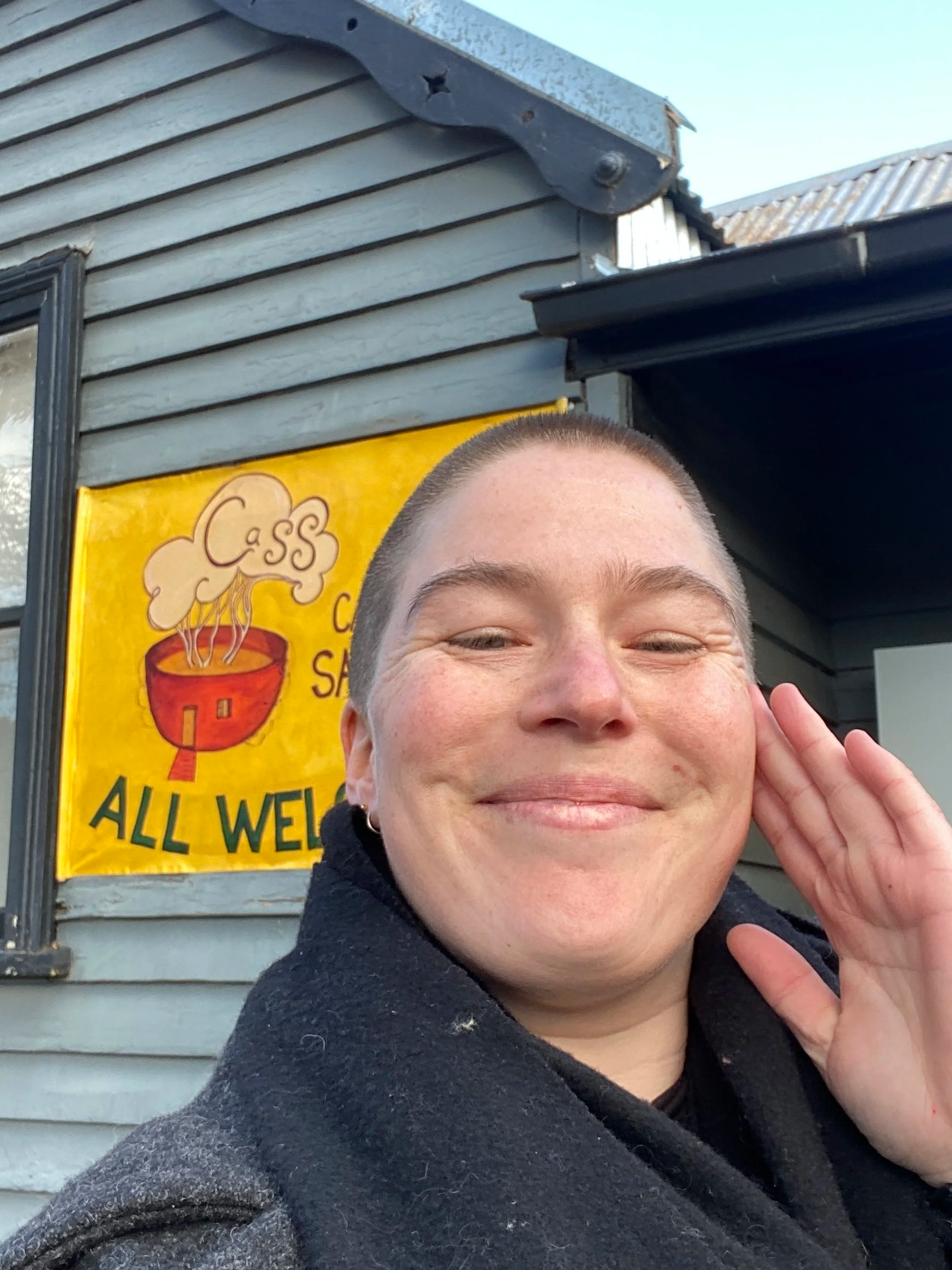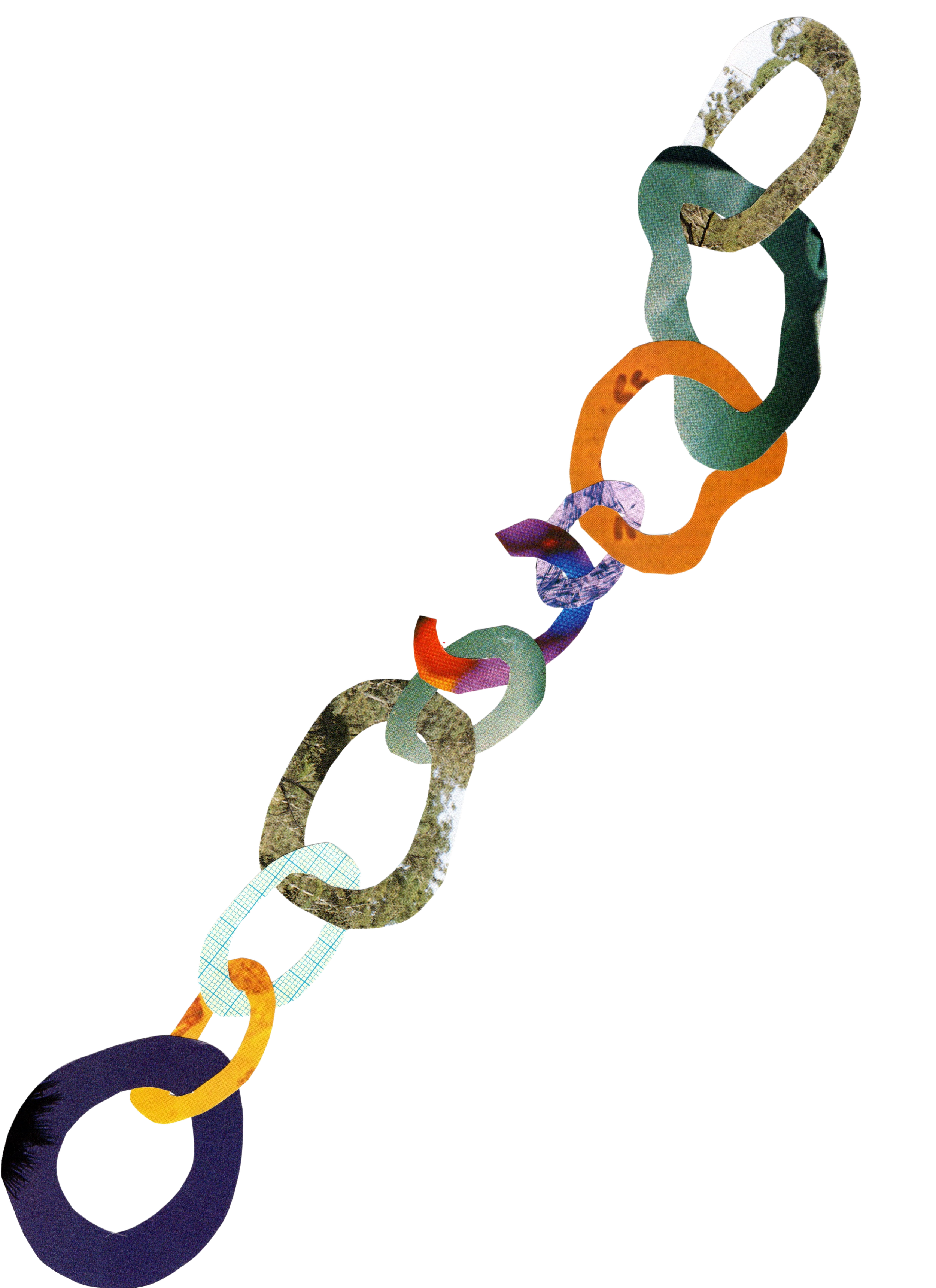
Therapy at soft story feels different
You've probably tried therapy before. Maybe it felt rushed, like you had to perform progress on someone else's timeline. Or perhaps the focus was all about "fixing" symptoms without asking what kind of life you actually want to build.
Here's what's different:
We move at the pace your nervous system needs. Healing isn't linear, and you won't be pushed faster than feels safe. If you need to slow down, we slow down. If you need to pause, we pause.
Your body gets to have a voice. Through EMDR, somatic work, and creative practices like writing or art-making, we work with what your body has been holding — not just what you can put into words.
You're the expert on your own life. I bring training and tools, but you bring the wisdom of your lived experience. We work collaboratively, not hierarchically.
We honour what kept you safe. Those patterns of people-pleasing, hypervigilance, or disconnection? They made sense once. We'll explore them with curiosity and compassion, not judgment.
This is about building meaning, not just managing symptoms. Yes, we want you to feel less overwhelmed, less anxious, less stuck — but more importantly, we want you to feel more connected to what matters, more present in your body, and more able to show up as yourself.
This approach resonates particularly with people who've spent years putting everyone else first, who struggle to trust their own judgment, or who carry the weight of early experiences that taught them their needs didn't matter. It's for those navigating identities the world wasn't built to hold, healing from relational patterns that no longer serve, or simply exhausted from trying to fit into frameworks that were never designed for bodies and lives like yours.
Ready to see if we're a good fit? Book a free 30-minute intro call — no pressure, just a chance to ask questions and see how it feels to talk with me.

access, justice and collective care
At soft story, I believe healing doesn't happen in isolation — it's shaped by the systems we live in, the communities we belong to, and the identities we hold.
I'm committed to offering therapy that is justice-oriented and grounded in care for the most marginalised. That means naming the harm caused by systemic oppression, working to dismantle it where I can, and staying open to feedback when I get it wrong. I practice accountability as an ongoing commitment, not a destination, and believe collective care is foundational to individual wellbeing.
soft story is proudly queer-centred, neurodivergent-affirming, kink-friendly, and sex worker-allied. I value continuous learning and unlearning, and honour First Nations sovereignty not just in words, but in action — by redistributing 2% of all session fees to First Nations-led community groups.
Being justice-oriented also means understanding that access doesn't look the same for everyone. Rather than assuming what you need, I work alongside you to make therapy feel supportive and meaningful — in both content and structure.
Some ways I've supported access include:
Appointment reminders
Visuals and creative tools
Experiential therapies like EMDR and somatic to support botton-up processing
Gestalt language processing and explaining the reasons behind therapeutic actions
Providing written session summaries to support memory function
Help setting up telehealth
Involving a support person in sessions or communication
Openness to spiritual or unseen experiences, like hearing voices
If your access needs aren't listed here, reach out — I'll do my best to meet them.

Green Bottle sliding scale
〰️
Green Bottle sliding scale 〰️
Our pricing structure moves beyond traditional fee-for-service models toward equitable access and resource redistribution within our community, based on your ability to meet your basic needs or access to an expendable income.
Basic Needs include food, housing, health care, and transportation.
Expendable Income might mean you are able to buy coffee or tea at a shop, go to the movies or a concert, buy new clothes, books, and similar items each month, etc.
We invite you to assess your circumstances honestly and choose the tier that most closely reflects your current reality. We trust your assessment completely — no questions asked, no documentation required.
tier 1 // $80 for a standard session
This tier is for community members who need extra support to access care. This might be you if
I frequently stress about meeting basic needs & don’t always achieve them
I have debt and it sometimes prohibits me from meeting my basic needs
I rent lower-end properties or have unstable housing
I do not have a car and/or have limited access to a car but I am not always able to afford gas
I am unemployed or underemployed
I qualify for government assistance including the disability support pension
I have no access to savings
I have no or very limited expendable income
I rarely buy new items because I am unable to afford them
I cannot afford a vacation or have the ability to take time off without financial burden
tier 2 // $120 for a standard session
Meet your basic needs but with little financial comfort. This might be you if
I may stress about meeting my basic needs but still regularly achieve them
I may have some debt but it does not prohibit attainment of basic needs
I own or lease a car
I am employed
I have access to regular health care
I might have access to financial savings
I have some expendable income
I am able to buy some new items and I thrift others
I can take a vacation annually or every few years without financial burden
tier 3 // $160 for a standard session
Comfortably meet all basic needs without stress. This might be you if
I am comfortably able to meet all of my basic needs
I may have some debt but it does not prohibit attainment of basic needs
I own my home or property OR I rent a higher-end property
I own or lease a car
I am employed or do not need to work to meet my needs
I have regular access to health care
I have access to financial savings
I have an expendable income
I can always buy new items when I need them
I can afford an annual vacation or take time off





